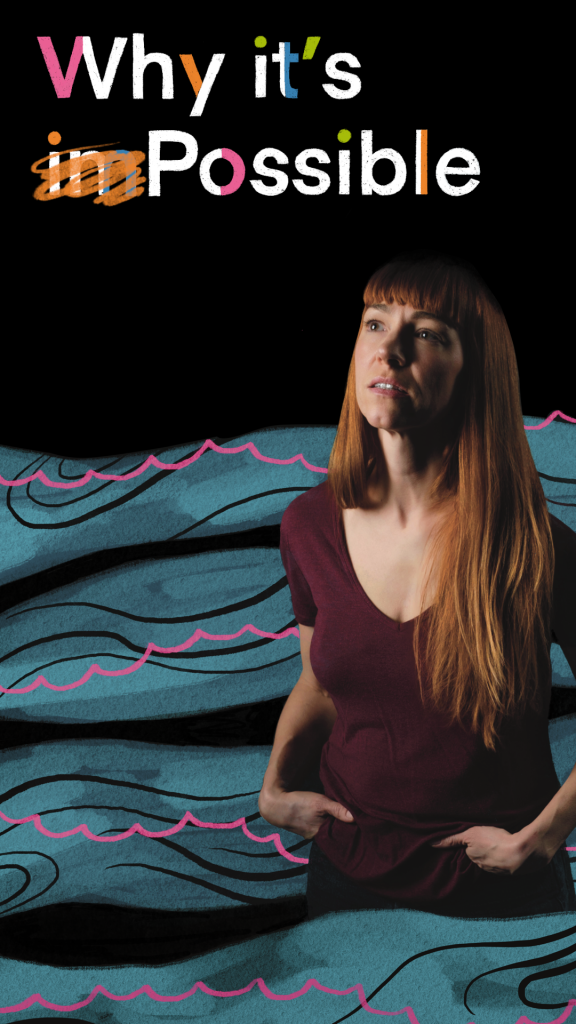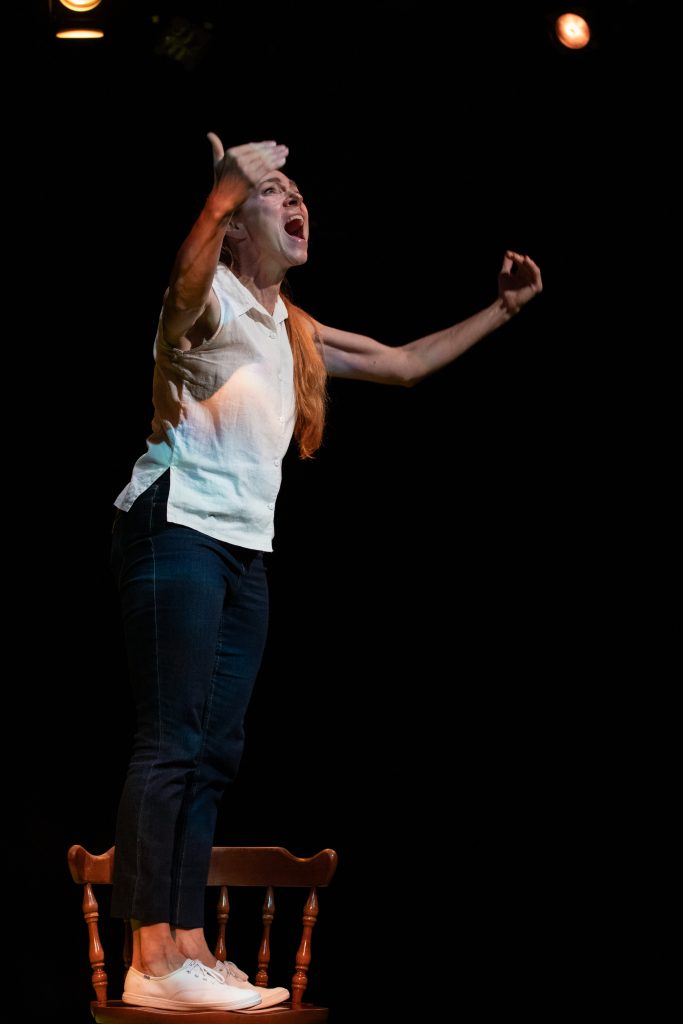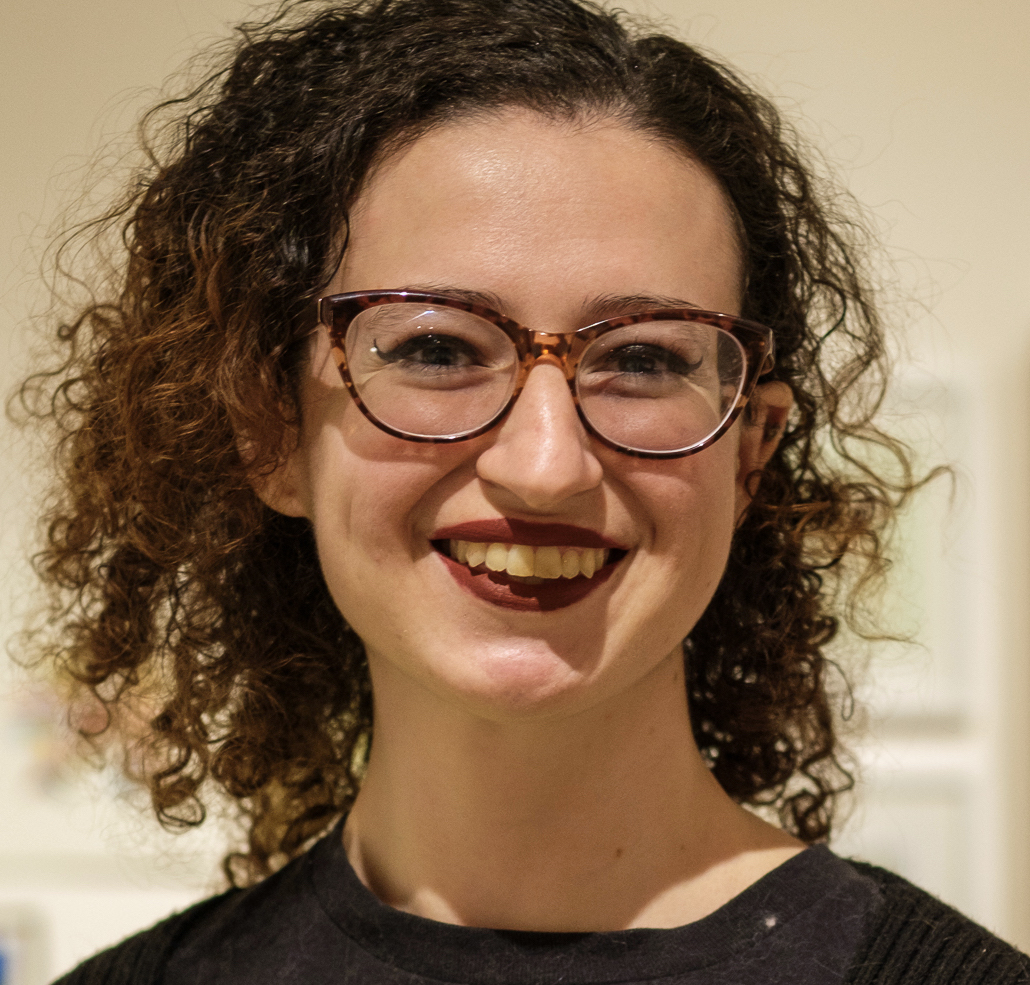‘Why It’s i̶m̶Possible’ Offers Possibilities for Precarious Times

“Can I give up being a good daughter to become a better mom?” Written by Sophia Fabiilli and directed by Evalyn Parry, Why It’s imPossible is a one-person show starring Zoë Sweet as Beth, a single mom struggling to raise her kid while working on her career. However, while Sweet is phenomenal in her role, “one-person show” is a bit of an understatement—taking four years to put together, the show upholds the adage that “it takes a village to raise a child,” and is indebted to many collaborators and supporters. It’s really wonderful to see such amazing commitment to the project, and that dedication and love for the work shines through in the production even though it is only Sweet onstage.
The show describes itself as exploring “parenting in precarious times,” which it does well—Beth is struggling as she balances work and parental obligations while living in her mother’s basement and trying to figure out why her child seems to be acting differently. The show is as much about Beth’s relationship with her child, nicknamed Chickpea (there is a very cute story behind the name), as it is about the relationship that adult children have with their parents, exploring both Beth’s experiences as a mother and as a daughter. With excellent writing, acting, and direction, the show navigates these difficult tensions with grace, nuance, and humour.
Sweet narrates and moves through Beth’s experiences as a kind of stream of consciousness, as well as portraying different characters such as Beth’s mother, her child, her childhood best friend Liam, various teachers and counsellors, and her new neighbour at the family cottage, Patty. Sweet is excellent at conveying these characters through only mannerisms and voices, and without any kind of costume change. These characters are key figures in Beth’s life, and often alternate between being emotionally touching and pushing her buttons, to both comedic and heart-wrenching effects.
The play expertly navigates the frequently fuzzy line between humour and heartache, while the narrative unfolds gradually through Beth’s present stay at the cottage with her child, intertwined with previous events leading up to this point. There is also great use of the bare set designed by Kaitlin Hickey—a plain square platform with only a wooden kitchen-style chair that Sweet often moves around to suit different settings. Yet the show powerfully and effectively conveys all kinds of objects, places and emotions.

I was also glad to see that the show doesn’t shy away from Beth’s own privilege, which she names several times—she is a white woman from a privileged background, living in the suburbs (albeit with her mother, but the ability to do so is a privilege in itself), and working at a publishing company. Although she has experienced difficulties (moving from a big publishing house to a smaller one, and subsequently working less and having to give up her Toronto apartment to move in with her mother), she is relatively secure and has fallback options. She is also able to travel to the family cottage with her child to spend time together and work through how they’re feeling.
The play directly refers to resources like the TransFamily Alliance Network, both through directly naming the network and through in-character connections. While these moments felt a bit awkward once or twice, I think it’s important nevertheless for the purpose of crucial resource-sharing, and they were smoothly integrated into the narrative despite feeling a little overt when mentioned. The show is also indebted to the support and collaboration of TransFamily Kingston, members of which were present at the opening night I attended and were thanked before the performance. Community members will also be present at select special talkback performances, which is a great way to open up and continue the conversation from the performance. It’s lovely to see this support and connection to the broader community.
Sweet and the production team offer an extremely thoughtful show with a huge heart—the production tackles complex topics like gender and sexuality with great complexity and understanding, and a lot of love from many people working together to support the project. While perhaps especially suited for parents, the show is a must-see in general, as it suggests that things that may seem impossible alone become possible through connection and support.
“Why It’s imPossible” presented by Sweet ‘n Fab Collective is playing at the Grand Theatre until September 29, 2024, including several special performances with talkback sessions. For more information and tickets, click here.
